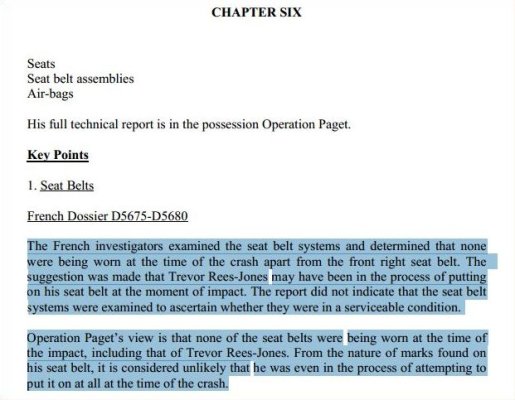I wonder how many members of this forum have actually finished reading that report, especially the part regarding whether the driver was drunk. I spent a whole night on the report, just found it mission impossible to finish

. But per what I have read, the general idea in a nutshell is
(1) The blood test of the driver conducted by the french authority had a lot of misdeeds.
(2) Some results of the blood tests was very ridiculous. The alcohol level indicated by those tests would have killed a person within 3 seconds.
(3)Investigators could not find any witnesses who could prove the driver was drunk.
(4)Investigators could not find any witnesses who could prove the driver had drunken a large amount of alcohol.
(5)Investigators could not identify the time frame when the driver get drunk that night.
According to what I have read, I got an impression that the investigators were not sure whether the driver was drunk or not.




 Read the Operation Paget report.
Read the Operation Paget report. . But per what I have read, the general idea in a nutshell is
. But per what I have read, the general idea in a nutshell is